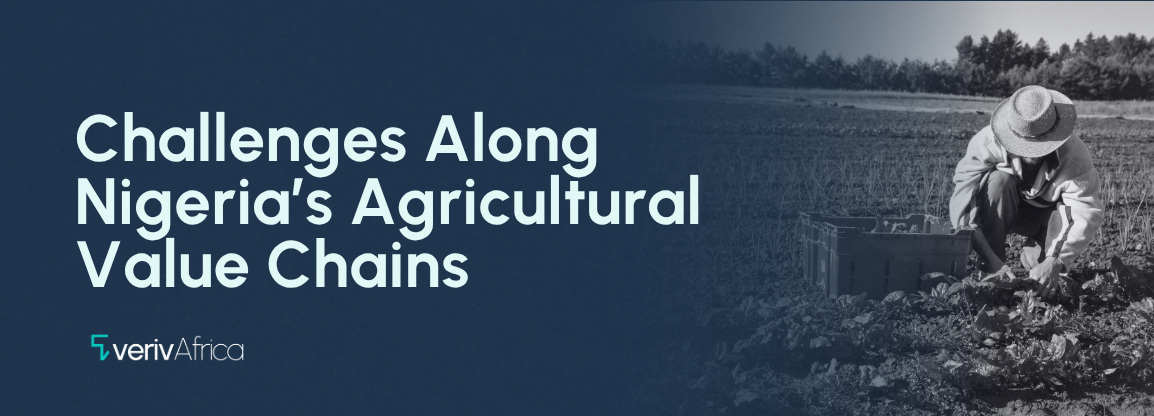Regulation in the technology sector is a double-edged sword. On one hand, it protects consumers, innovators, the environment, etc. On the other hand, it could stifle innovation, discourage investments in the industry, and impede the sector's growth. Balancing the impact of regulations in this sector is challenging but essential for fostering both technological advancements and adoption.
The Current State of Tech Regulation in Africa
Africa’s tech sector is the fastest-growing sector on the continent. More tech companies are developing in Africa than in the rest of the world. Startups spread across different industries, including financial tech (fintech), health, education, and even emerging technologies such as AI and biotechnology. There are over 250 tech regulations on the African continent today. These regulations cover different areas of the industry, extending beyond startup operations to also govern macroeconomic issues related to the workings of the industry.
A closer look at the individual tech ecosystems of each country gives insight into the type of regulatory framework to expect. In countries like Nigeria, South Africa, and Kenya, where fintech is a booming sector, policies on digital payments, financial inclusion, and data privacy are more common. Guidelines or policies are in place in the countries where blockchain and cryptocurrency are a trend. In countries where e-commerce is common, cyber crimes and fraud protection laws are more prevalent than in others. The tech regulations in Africa depend highly on the specific fibres that form each country’s ecosystem, even when they revolve around common areas such as data protection, cybersecurity, digital payments, telecommunications, and taxation.
Tech regulations on the continent are fragmented because individual country laws have no uniformity or interconnectedness. The problem with only having individual laws is how distorted this leaves the tech ecosystem on the continent. When laws vary from country to country, it poses a problem for the unified development of the sector. These regulatory discrepancies make cross-border expansions and trading difficult for startups. They result in extra costs, can be confusing, and make companies more susceptible to possible liabilities or legal bottlenecks. While necessary to meet each country’s unique needs, the focus on individual country regulations neglects the impact harmonised continental regulations could have on the sector's growth by attracting new startups, encouraging expansions into new markets, and even partnerships amongst startups that could strengthen economic ties.
Following the current fintech regulatory standards in Nigeria, the following is an overview of what it may look like navigating varying laws if a Kenyan fintech startup wants to expand operations into Nigeria:
- They would have to research and understand the requirements, scope, terms, and conditions of up to 10 fintech regulatory bodies in Nigeria, including the Central Bank of Nigeria (CBN), the Securities and Exchange Commission (SEC), the Corporate Affairs Commission (CAC), the National Information Technology Development Agency (NITDA), etc. Kenya’s regulatory framework, on the other hand, is led by its central bank.
- They must understand and navigate the differences in the regulatory landscapes of both countries regarding data protection, consumer protection, and licensing systems.
- They have to obtain the necessary licenses from the relevant bodies and satisfy the regulatory standards, including the registration requirements stipulated by the CAC. These have financial implications.
- Then, they undergo various mandatory compliance checks, which cost individual fees. These compliance issues and costs pose a challenge to startup sustenance, resulting in the closure of some startups.
A Better Approach to African Tech Regulations
At the 2024 Africa CEO Forum, industry leaders and policymakers participated in a roundtable discussion on achieving innovation-friendly tech regulations. The discussion focused on developing a new approach to regulation that is responsive to technological advancements and anticipatory of future developments while protecting consumer rights and encouraging innovation. Regulation must be approached differently to achieve these goals, focusing on these three areas.
- Harmonised Policies: A look at the development strategies of other continents, like Europe and Asia, reveals interconnected approaches to growth because they understand how partnerships and communal progress impact individual growth. Interconnected policies in the tech industry allow startups to expand operations across borders, and increase their market size easily. Uniform policies involve regulatory bodies from different countries collaborating to establish strategic partnerships in similar tech sub-sectors, fostering growth by offering exemptions or relaxed regulations in specific areas. It could also mean working together to develop and adopt policies that have worked in individual countries.
Harmonised policies can shape the future of African tech in two ways. Firstly, development becomes more consistent when policies are more uniform across the continent. This way, fewer countries are left behind in the move towards development, and regional competition and partnerships become more possible. For instance, Morocco has the highest internet penetration rate in Africa at 91.3% because the government has been persistent about digitalisation policies, including lowering the cost of internet data and extending broadband access to rural areas. These efforts have taken the number of internet users in the country from 20 million in 2017 to 32 million in 2022.
Meanwhile, digitalisation rates remain some of the lowest globally due to a lack of government intervention across other regions of Africa like Zimbabwe, Uganda, and the Central African Republic. Secondly, with uniform policies, startup expansion, inter-regional trade and cross-border transactions become easier to navigate. Expansion presents multiple benefits to countries, including increased revenue and, sometimes, increased innovation in secondary countries, which could result in increased digital participation and employment.
- Regulatory Sandboxes: Sandboxes allow startups to test their ideas and innovations in a market for a short period, free of compliance or regulatory obligations. This will enable companies to determine whether or not a market is ready for them and any necessary adjustments that could be made to achieve success. This impacts the future of the African tech sector by making it easier for people to try out and introduce innovative ideas that could improve society.
Sandboxes could also reduce the chances of startup closures and make it easier for them to pivot. For instance, when Lazerpay, a Nigerian crypto tech startup, shut down, partly because of the unstable regulatory framework in the country, a sandbox could have made it easier for them to pivot their solution to new markets like South Africa and Mauritius where crypto use is legalised, more common use, and enjoys stable regulations. Mauritius has 23,208 crypto users, a growing population with a keen interest in blockchain technologies. Mauritius was also the first African country to release a crypto license framework, contributing to being one of the most forward-looking in crypto adoption. The Pursa Exchange, a platform for people to buy, sell, and exchange cryptocurrencies, sees 40% of its Mauritanian users transact daily.
- Open Collaboration: The development of regulatory policies needs to be more collaborative between industry players/stakeholders, government organisations, and consumers or private citizens. Collaboratively approaching regulations ensures the interests of each possible affected party are heard and accounted for in the process. This approach is necessary because it could help increase tech adoption rates, especially with emerging technologies like AI, where Africa lags behind adoption-wise. By recognising and creating policies that consider the general public's concerns, it becomes easier to improve public trust and adoption of these technologies.
The following quote from the German Institute for Global and Area Studies summarises this insight’s point: “As Africa’s digitalisation accelerates, African governments must develop policies that simultaneously harness the benefits of new technologies and ensure that lagging countries and segments of society do not fall further behind. Policies should incentivise private investment in Africa’s digital infrastructure and encourage entrepreneurship and innovation while preventing unregulated new technologies from harming consumers. In addition, digital skills need to be strengthened to prepare African countries for the coming digital century.”
For a long while, Africa has consistently ranked as the poorest continent in the world. This poor ranking can be attributed to several factors, including (but not limited to) inequality in growth and minimal economic diversification. With its booming tech sector and consistently growing youthful population, the continent wields a unique opportunity for a new development plan. This plan should prioritise leveraging appropriate regulations to boost digital participation in the modern era, fostering technological innovation alongside traditional institutions to streamline processes, enhance outcomes, and drive global economic development.
References
Agence Français De Développement. (2023, June 12). More Tech Companies Are Developing In Africa Than The Rest Of The World. https://www.afd.fr/en/actualites/more-tech-companies-are-developing-africa-rest-world
European Parliament. (2023, June 8). AI Act: First regulation on artificial intelligence. https://www.europarl.europa.eu/topics/en/article/20230601STO93804/eu-ai-act-first-regulation-on-artificial-intelligence
Fintech Association of Kenya. (2024, May 16). A guide to Kenya’s fintech regulatory framework. https://fintechassociation.africa/blog/a-guide-to-kenyas-fintech-regulatory-framework
Forbes. (2023, July 5). Crypto regulation in Africa: Seven nations and their regulatory stance in the last five years. https://www.forbes.com/sites/roselynewanjiru/2023/07/05/crypto-regulation-in-africa-here-are-seven-nations-and-their-regulatory-stance-in-the-last-five-years/
German Institute for Global and Area Studies. (2022). Digital Africa: How big tech and African startups are reshaping the continent. https://www.giga-hamburg.de/en/publications/giga-focus/digital-africa-how-big-tech-and-african-startups-are-reshaping-the-continent
Global Legal Insights. (n.d.). Fintech laws and regulations 2024 – Nigeria. https://www.globallegalinsights.com/practice-areas/fintech-laws-and-regulations/nigeria/
Statista. (n.d.). Share of internet users in Africa by country, as of January 2024. Retrieved March 14, 2024, from https://www.statista.com/statistics/1124283/internet-penetration-in-africa-by-country/
Statista. (2024, July 8). Internet usage in Morocco: Statistics & facts. https://www.statista.com/topics/10519/internet-usage-in-morocco/
The National Law Review. (2023, June 30). NYC’s Local Law 144 and the final regulations: Regulation of AI-driven hiring tools in the United States. https://natlawreview.com/article/nyc-s-local-law-144-and-final-regulations-regulation-ai-driven-hiring-tools-united
The Peer. (2024, April 1). The Peer sunset. https://blog.thepeer.co/thepeer-sunset
Veriv Africa. (2024, May 6). AI in Africa: Adoption challenges, impact, and growth opportunities. https://www.verivafrica.com/insights/ai-in-africa-adoption-challenges-impact-and-growth-opportunities
Veriv Africa. (2024, August 30). Why the Nigerian tech industry is fintech-driven. https://www.verivafrica.com/insights/why-the-nigerian-tech-industry-is-fintech-driven
We are Tech Africa. (2023, May 22). Morocco launches program to expand internet access to 1800 rural areas. https://www.wearetech.africa/en/fils-uk/news/morocco-launches-program-to-expand-internet-access-to-1-800-rural-areas










